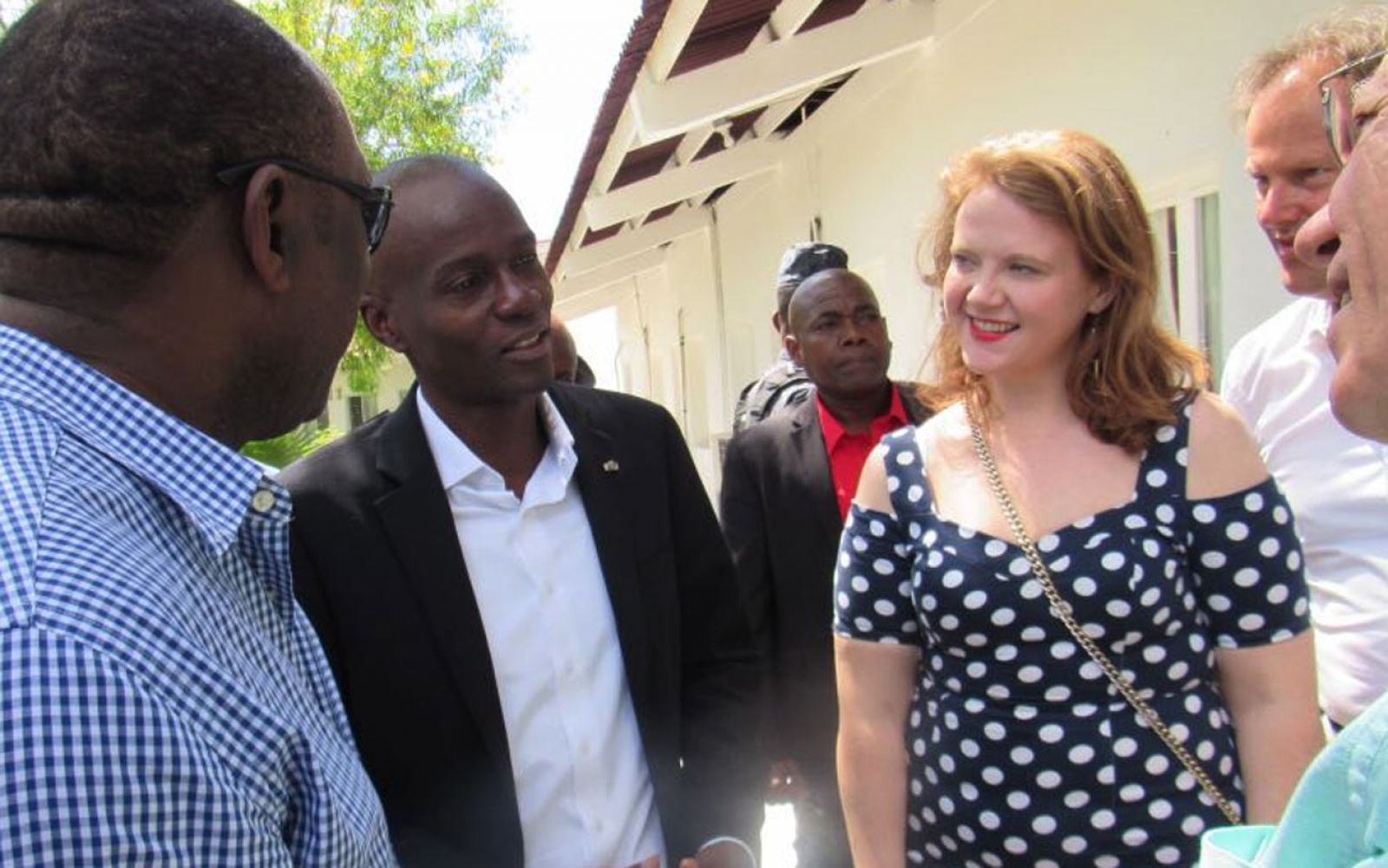
President of Haiti Jovenel Moïse meets Senator Catherine Noone of Ireland and Former Senator Mac Harb of Canada after arriving at the Senate retreat site.
SHARE
In the small coastal town of Montrouis, far from the bustle and parliamentary buildings of Port-au-Prince, Haitian senators gathered to jump start work on the nation’s challenges. The NDI-supported retreat, held from from March 3 to 5, focused on the 2017 legislative agenda. Senators from across the political spectrum engaged in passionate debate on pending issues and showed a readiness to work with the executive branch to meet the needs of the Haitian people.
Parliamentary retreats to discuss legislative priorities are common practice around the globe as they provide elected officials the opportunity to build consensus needed to legislate and overcome partisan divisions that can often lead to gridlock. In Haiti, Mirlande Manigat, a former senator and one of very few women to have run for the presidency, opened the retreat with a review of the constitutional role of the Senate in Haiti’s government. Two visiting international experts – a sitting Irish senator and a former Canadian senator – provided comparative examples of legislative processes and practical suggestions for how senators can evaluate and advance legislation and communicate with constituents.
The current Haitian Senate, which took office in January 2016, has struggled to introduce and pass new bills. Because of delays in elections and Haiti’s staggered Senate election calendar, in 2016 only 20 senators of the 30-person Senate were officially in office, limiting its ability to reach quorum to hold votes. Haiti’s prolonged presidential and legislative election cycle, which began in 2015 and ended in 2017, also divided the senators’ time and attention.
This year, the Senate faces a host of pending challenges. The country is still struggling to recover from damage caused by Hurricane Matthew, which killed more than 1,000 people left 800,000 without food. However, food insecurity isn’t limited to hurricane-affected zones; weak agricultural infrastructure renders most of Haiti’s farmer vulnerable to drought and natural disaster. In addition to responding to these urgent issues, the Senate is tasked with rebuilding trust in Haiti’s political institutions after delays in elections resulted in one year of presidential rule by decree absent a functional parliament and one year with a provisional president, ending in February 2017.
With the elections finished and a new Senate leader elected in January, senators are eager to improve the productivity of the body. Many have already formed coalitions to develop legislation to support Haitian farmers and address youth unemployment.
Twenty-three members of the Haitian Senate gathered to discuss the 2017 legislative agenda.
The retreat culminated with a visit from the recently elected President of Haiti Jovenel Moïse, who won office in the first round of re-run elections in November 2016. President Moïse participated on the last day of the retreat to help harmonize the Senate and executive’s legislative agendas and ensure effective collaboration between two branches of Haiti’s government.
This program is made possible by funding from the United States Agency for International Development through the Consortium for Elections and Political Process Strengthening (CEPPS).



